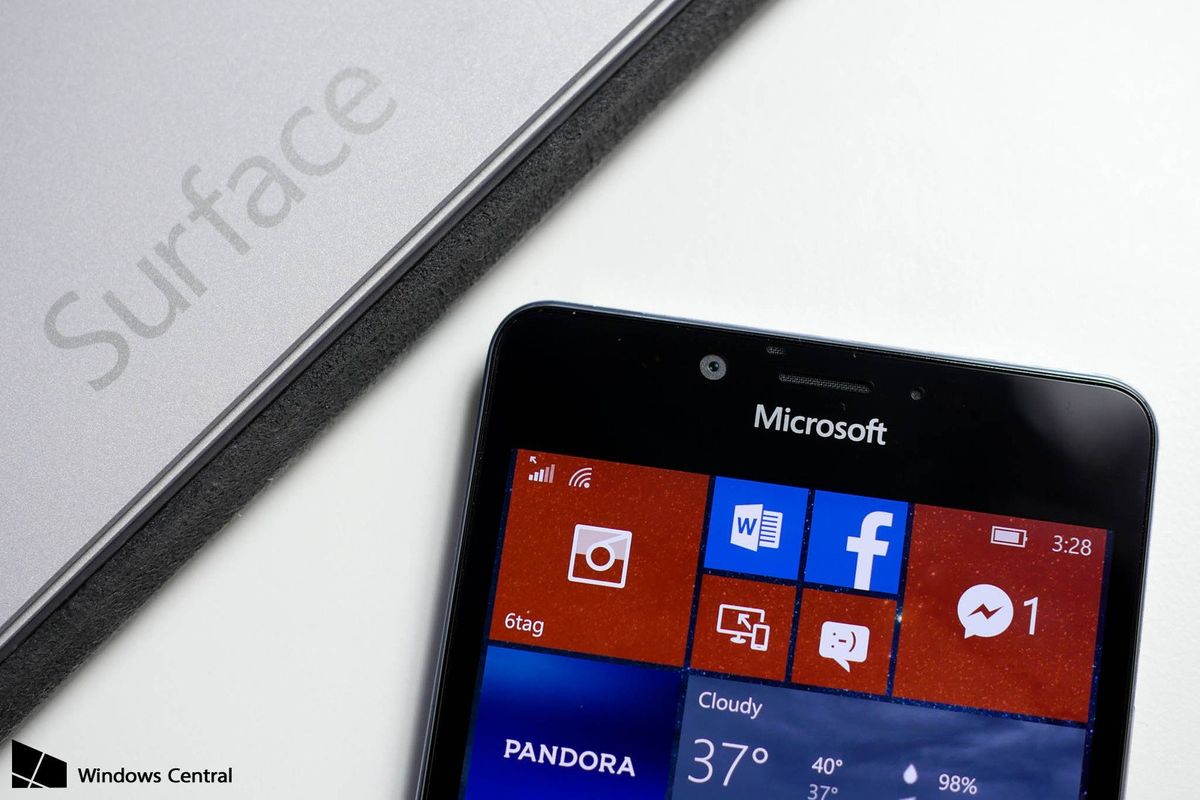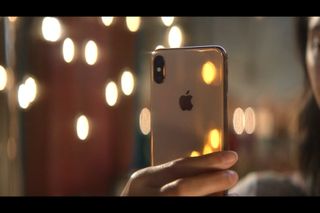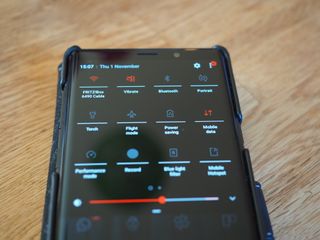Why Microsoft isn't making a smartphone, even though you want one

Before iPhone's 2007 debut Microsoft peaked with nearly 50% of smartphone market share. Eleven years later Microsoft has no hardware horse in the iPhone/Android mobile race duality. Added to this conspicuous absence the story of Windows-on-phone's demise is wrought with anger from proponents, regret from within Microsoft and mockery from opponents.
Microsoft CEO Satya Nadella who infamously claimed there was no room for a third mobile platform in his opposition to Microsoft's purchase of Nokia's phone business is blamed by many for Microsoft's current mobile woes. However, Microsoft's late move in 2010 to bring a consumer-friendly mobile platform to market, three years after iPhone, is the root of the problem.
Over-confidence and years of innovation "immobility" with pre-Windows Phone Windows Mobile set Microsoft's broader Windows-on-mobile strategy's progress at a snails-pace easily overtaken by the competition. Now, with established platforms, popular devices and user's forced exodus from Windows-on-phone Microsoft isn't making another smartphone, even if you want one. But Microsoft isn't done with mobile.
What makes a mobile platform successful?

Nadella was probably right in his early assessment that there was no room for a third mobile platform in the traditional slate smartphone sense. Nadella made later statements about bringing an "ultimate mobile device to market," that is "beyond the curve." This lends credence to the belief that his reservations about a third mobile platform were limited to refraining from competing in a market with entrenched rivals, invested users, an app store and developer economy that had passed slow-moving Microsoft by.
The current 11-year-old mobile infrastructure revolves around app ecosystems, strong developer and carrier relationships, OEM partnerships in the case of Google and Android, and premium hardware and software synergy for Apple.
From 2010 to 2015 Microsoft tried (perhaps half-heartedly) to adapt its mobile efforts to this infrastructure but failed miserably. Microsoft ultimately realized there was no room for another smartphone platform. And that's okay; smartphones are dead anyway.
Smartphones are dead



Early "smartphones" were more "phone" than anything else. Usage patterns on these keyboard-equipped devices with two- to three-inch screens focused on talking and light email use, text messaging, document review and little more.
Get the Windows Central Newsletter
All the latest news, reviews, and guides for Windows and Xbox diehards.
Current devices with mini-tablet-like HD six-inch-plus touch displays, high-speed processors, 4 gigabytes of RAM, up to 256 gigabytes of storage, integrated artificial intelligence (A.I.) and more are mini tablet computers. This isn't semantics. What we call smartphones are pocket computers that consumers compare using the same spec categories we've traditionally used when shopping for PCs.
This hardware evolution, the accompanying order of magnitude increase in capabilities and the consistent connectivity to evolving mobile broadband is a very subtle, but notable, shift in the mobile industry. Mobile device usage patterns have shifted from one category (phones) to another (PCs). Usage is no longer phone-first focused. With web-surfing, gaming, content creation, and editing, messaging and more being the focus mobile devices are used as tablet PCs-first, that happen to have telephony. This shift is good news for Microsoft and one reason why it's not making a smartphone.
It's about the experiences

Though hardware is important to users, experiences matter most. A user isn't really concerned "how" he orders tickets to a show as long as his device helps him do it. Traditionally, tapping an app or opening a mobile website helped users accomplish tasks. That behavior and multilayered paradigm (involving developers, app stores, devices) are entrenched. Moving against the inertia of that system is difficult but it's happening …slowly.
Furthermore, digital assistants and ambient computing's evolution lets users speak to devices. Google Assistant and even Cortana now do what some apps used to do. Google demonstrated A.I. that is indistinguishable from a real person setting appointments, or answering a phone call. The experience of getting things done on our mobile devices is slowly evolving to be less app-dependent as A.I. becomes more integrated and capable.
Progressive Web Apps (PWAs), hybrid app and web properties, are also slowly moving computing beyond the constraints of the app economy that Microsoft failed to gain a foothold in.
Though the technology is evolving slowly, a shift in how users experience getting things done is undeniably underway. Combined with a hardware evolution that has categorically moved from phones to literal pocket computers some of the barriers that prevented Microsoft from entering mobile with a third platform are slowly coming down. Microsoft's mythical Surface "Andromeda" needn't be defined as a phone since mobile device usage patterns are more consistent with PCs.
Living on the edge ...with Andromeda?
Microsoft's focus on edge computing and its new game streaming service xCloud leverages the power, accessibility, ubiquity, and device agnostic nature of the cloud to get things done.
Cloud computing and app and game streaming (regardless of platform) on the edge is what Microsoft's cloud strategy is about. Microsoft doesn't need a smartphone to take advantage of this. A pocket computer, that supports common user experiences thorough A.I., PWAs, cloud computing and of course apps (for now) would do.
There was no room for a third smartphone platform eight years ago. As mobile is now "pocket-PC-centric" versus phone-centric, and A.I. and PWAs are beginning to show other means than traditional apps can facilitate user's mobile experiences, perhaps room is being made for a third, non-smartphone mobile platform.
What Microsoft should do


Microsoft should wholly eschew any association with Surface Andromeda being a phone (though possessing telephony). And position it as a pocket Surface PC showcasing xCloud and Windows Ink. It would be a specific PC category with Core OS that is admittedly niche, but gaming and inking-focused but with all the capabilities of Windows via Core OS.
Additionally, Microsoft should go all out in its support of OEMs to build this device category. No, Microsoft is not making a smartphone, even though you may want one. That time has passed. It's time for something better. The question is can Microsoft deliver?
Jason L Ward is a columnist at Windows Central. He provides unique big picture analysis of the complex world of Microsoft. Jason takes the small clues and gives you an insightful big picture perspective through storytelling that you won't find *anywhere* else. Seriously, this dude thinks outside the box. Follow him on Twitter at @JLTechWord. He's doing the "write" thing!